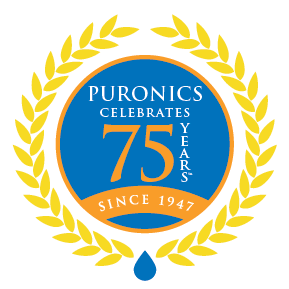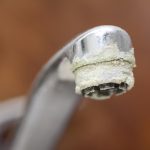Last Updated on August 26, 2021
Maintaining proper hand hygiene is important to stop the spread of germs and avoid getting sick, but how many of us are washing our hands as frequently as we should be?
We recently surveyed Americans across the country to examine their handwashing habits, including how often they wash their hands, when they wash their hands and how handwashing habits vary between demographics.
How Important is Handwashing?
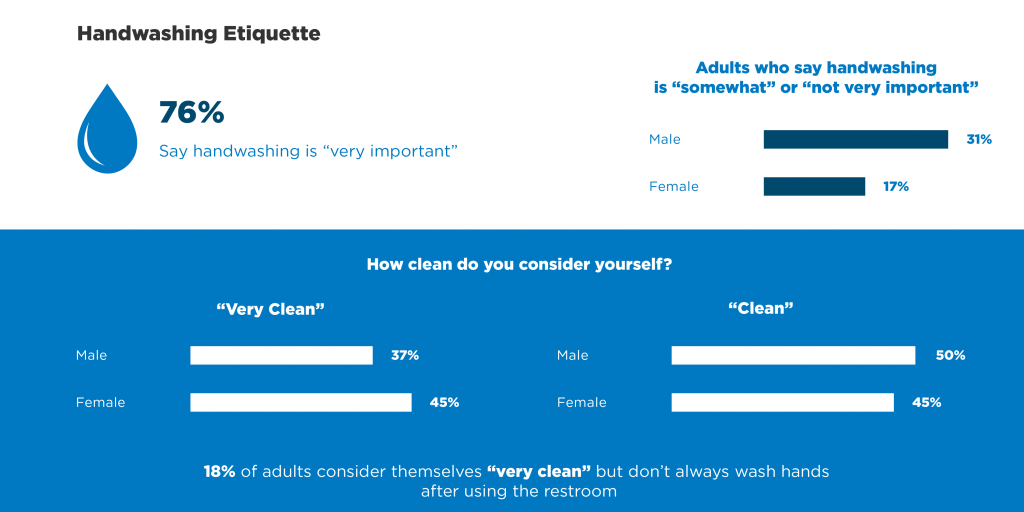
According to respondents, a majority say handwashing is “very important.” In fact, handwashing is so important that it is considered one of the best ways to prevent you or your family from getting sick, according to the Centers for Disease Control and Prevention (CDC).
It is interesting to note that the importance of handwashing varies by gender. Among respondents who say handwashing is only “somewhat” or “not very important,” almost one-third (31%) are male and 17% are female.
How Often Do Americans Wash Their Hands?
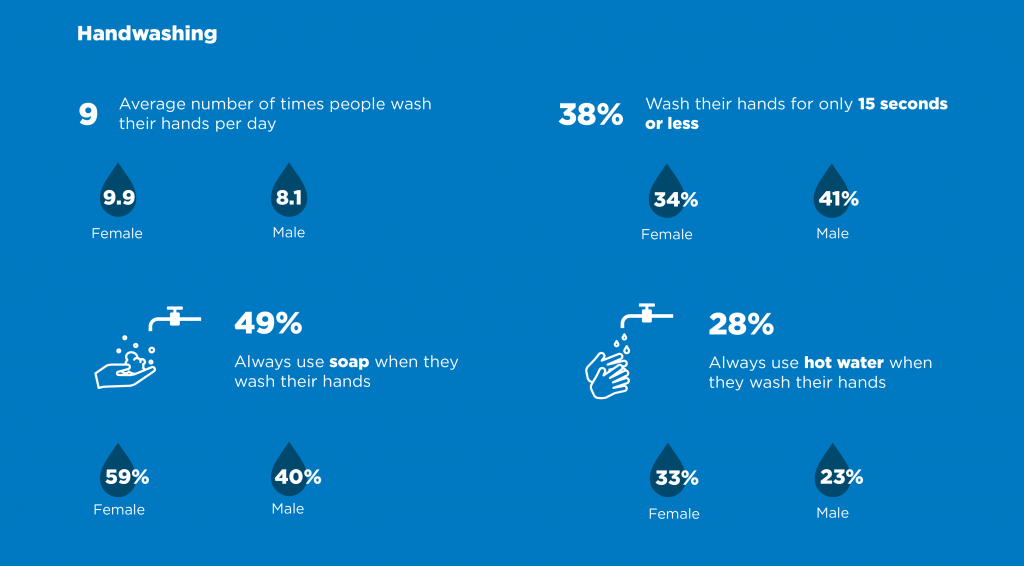
There is a difference between saying handwashing is important and actually washing your hands. Respondents say they wash their hands roughly nine times throughout the day with females washing their hands slightly more than males. However, only 49% of respondents say they “always” use soap when they wash their hands and less than one-third (28%) always use hot water.
According to the CDC, proper handwashing hygiene includes using soap and scrubbing your hands for at least 20 seconds (or long enough to hum “Happy Birthday”), but 38% say they only wash their hands for 15 seconds or less.
Handwashing and Restrooms

From light switches to the kitchen sink, germs can hide in plain sight throughout your home, but the bathroom can also be a magnet for bacteria, which is why it’s so important to wash your hands after using it. Most respondents agree that it’s “very important” to wash your hands after using the restroom, but 32% admit that they don’t always do it.
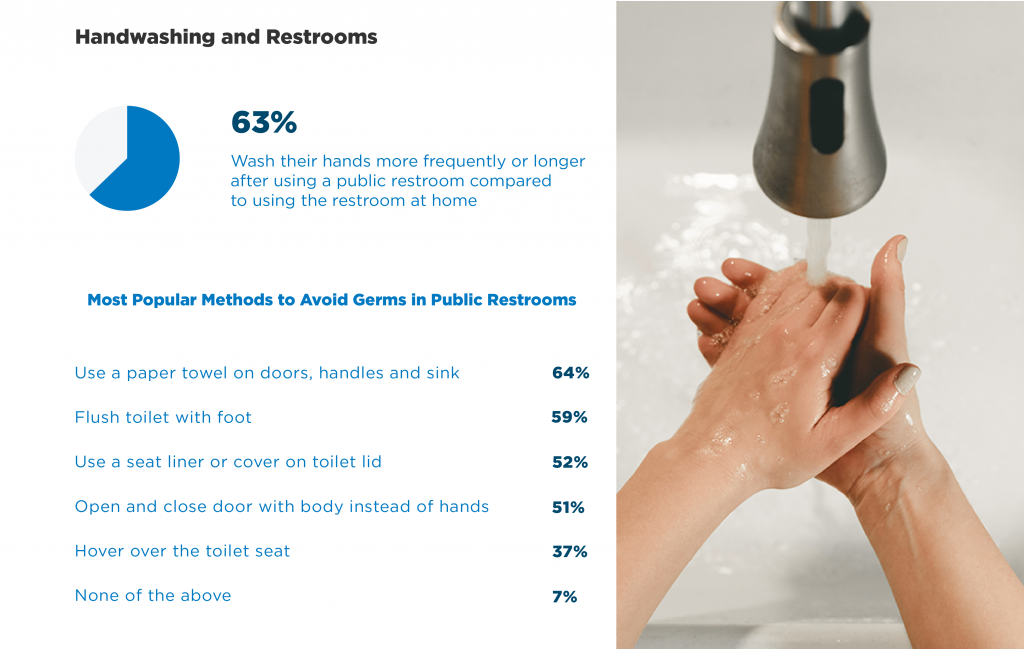
Along with washing your hands after using the restroom at home, it’s also important to do so when you’re out in public. According to respondents, 68% say they wash their hands for a longer amount of time when they use a public bathroom compared to using their bathroom at home.
Many take things one step further to avoid germs in public restrooms. The most common methods to avoid germs in a public restroom includes using a paper towel on doors, door handles and the sink (64%), flushing the toilet with your foot (59%) and using a seat liner or cover on the toilet lid (52%).
Handwashing in Public

Do you wash your hands when you return home after being out in public? A majority of respondents (62%) say it’s important to do so, but less than half (46%) say they always do. Males were more likely than females to say they don’t always wash their hands after being out in public.
Washing Hands Before Eating

CDC recommends washing your hands before, during and after preparing food, as well as before and after eating. Overall, 68% of respondents agree that it is important to wash your hands before eating, but only 42% say they always do. Once again, males were more likely than females to say they “sometimes” or “rarely” wash their hands before eating.
Washing Hands After Coughing and Sneezing
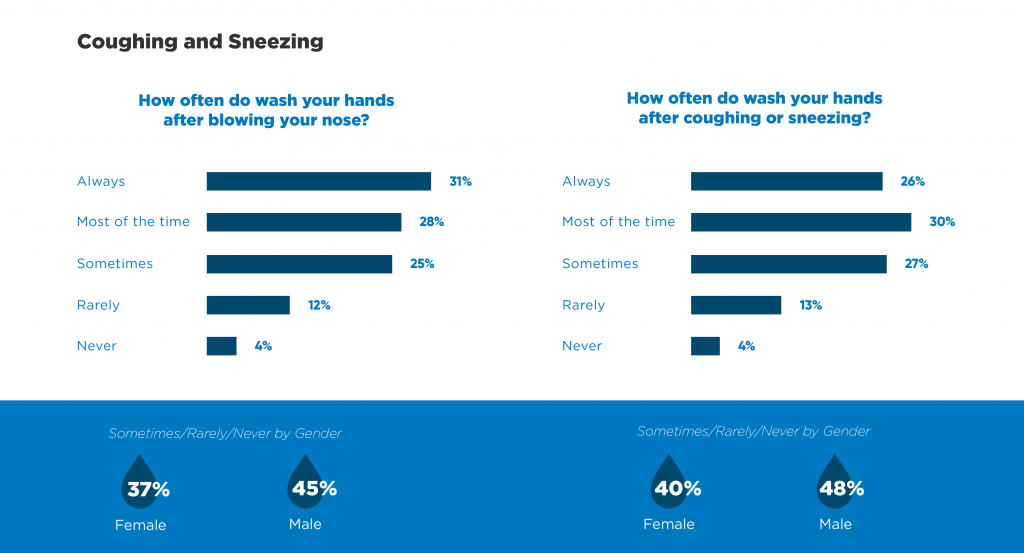
Blowing your nose, coughing, or sneezing can spread germs, which is why it’s important to wash your hands. According to respondents, more than half say they “always” wash their hands after blowing their nose or wash their hands “most of the time” after doing so. Overall, 45% of men say they only “sometimes,” “rarely,” or “never” wash their hands after blowing their nose compared to 37% of women. Men were also more likely to say they “sometimes,” “rarely,” or “never” wash their hands after they cough compared to 40% of women.
How Many Americans Are “Germaphobes?”
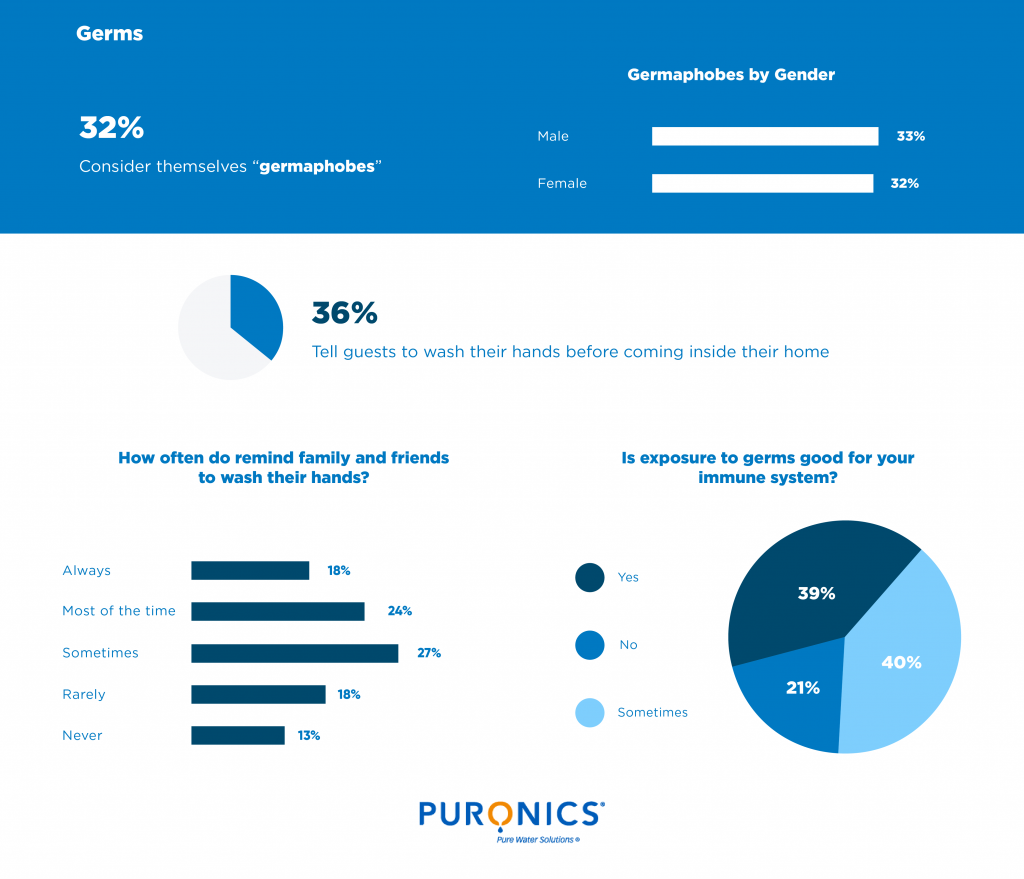
Not all bacteria are bad. Some exposure to common germs at a young age can fortify your immune system. But still, some people want nothing to do with germs and bacteria and consider themselves “germaphobes.” According to respondents, nearly one-third say they’re “germaphobes.” Overall, 39% say that exposure to germs is not good for your immune system while 40% say exposure can “sometimes” be beneficial.
Being a germaphobe might be a little extreme, but it shouldn’t overshadow the importance of maintaining proper hand hygiene. Forming simple habits like remembering to wash your hands with soap for at least 20 seconds can help prevent the spread of germs within your home and when out in public.
Is too much handwashing affecting your skin? Click here to find out if hard water in your home is the cause of skin issues.
Methodology
For this report, we surveyed 1,531 self-reporting Americans from April 27 to May 3, 2021. 52% were female and 48% were male with an average age of 38.

 Puronics, Incorporated
Puronics, Incorporated